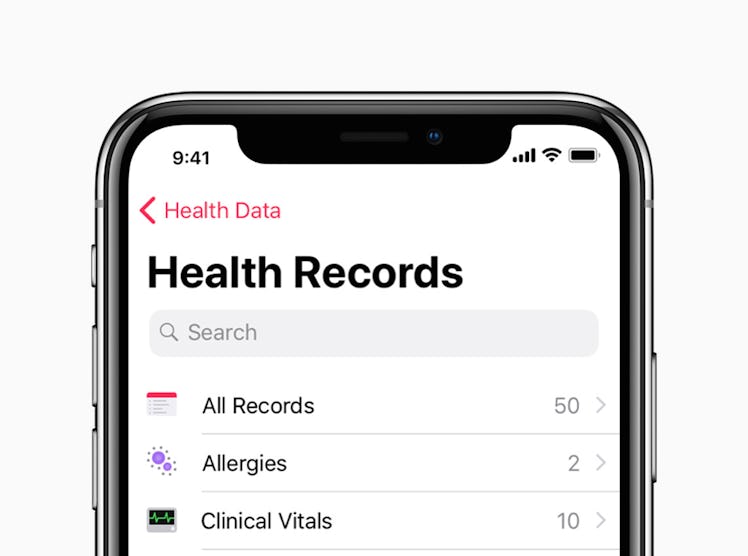I'm going to be up front here: I have tried to delete the Health app from my iPhone many times. If I'm out of storage, it's one of the first apps I go to to remove. Unfortunately, it's not possible to delete the app, so it just sits there on my phone. But if you are a user of the Health app, then you'll want to know about some changes that are coming. The iPhone Health app can get your medical records, or at least, it will be able to soon.
According to Mashable, on Jan. 25, Apple revealed its plan to make customers' medical records readily accessible via the Health app. The feature, which will be available to iPhone and Apple Watch owners with the iOS 11.3 update (out later this year), will change how people access and track their medical history. It's a clear indication that Apple wants to be more involved in customers' health care, beyond tracking their steps or their heart rates.
So how exactly does Apple plan to do this? Hospitals and doctors' offices usually work with third-party vendors who maintain the software that allows health care providers to share electronic health records with their patients (in other words, there are companies who keep your health records to share between hospitals and doctors' offices). Apple has partnered with three of these vendors, so that their software can be integrated with Apple's Health app. Twelve hospitals are currently taking part in the initial beta, including Johns Hopkins, Cedars-Sinai, and Ochsner.
With the public beta version, patients at participating hospitals can opt in to access health records on their iPhones using the Health app. After selecting one of the hospitals, patients will be directed to sign in using existing credentials. The Health app will sync with records, organizing the data into seven categories: allergies, clinical visits, conditions, immunizations, lab results, medications, and procedures.
If a patient visits different doctors or hospitals, they can access data from all of them at once, so long as the provider is a participant. They can also opt in to receive push notifications when records are updated with test results or new prescriptions. If medical stuff makes you anxious, this is definitely a great feature to have.
Naturally, with an announcement like this comes privacy concerns. Aside from financial records, medical records are perhaps the most personal and potentially vulnerable information a person can possess. Thankfully, medical records, like all other iPhone data, are encrypted and not stored in Apple's cloud, unless a patient opts to use iCloud. The records are also protected with a passcode, TouchID, or Face ID.
The Health app won't just serve as a digital folder. It will also help patients contextualize their records. Transparency between patients and their doctors can sometimes be lost if patients are unable to fully understand their records. By assisting with the interpretation, the Health app will offer patients a better idea of their own health and how to cope with it.
Not only is this new development convenient, but it could bring major changes to the medical industry. Availability and consistency of medical records have long been a subject of debate in the health care space. Apple could radically change the way patients access and think about their information, by giving patients an easy way to view it.
Unfortunately, actually trying the Health app's new capabilities won't just be a matter of a software update. As Mashable points out, the health care industry is "extremely fragmented and notoriously slow," so it will take a while before this becomes accessible to everybody. However, Apple remains confident about the development. Apple COO Jeff Williams told CNBC that the company "[views] the future as consumers owning their own health data."
Check out the entire Gen Why series and other videos on Facebook and the Bustle app across Apple TV, Roku, and Amazon Fire TV.
